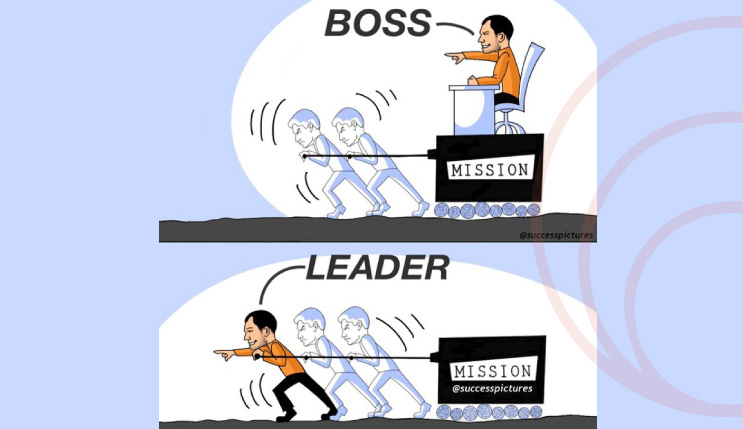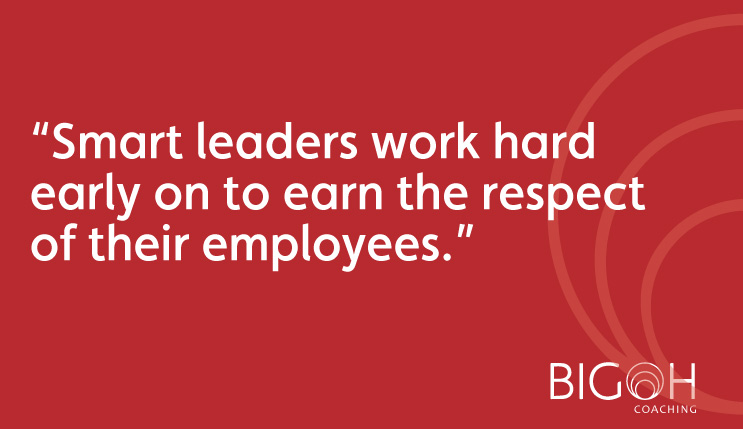26 Aug How a Boss Can Become a Leader (Part 1)

There is a difference between a boss and a leader. I would much rather be working for a leader than being just a “boss.”
After several decades of ‘working for the man,’ in a variety of organisations, I know the difference between the two. It can be stark.
I have been fortunate enough to have worked with both, and it is amazing what working with someone that you respect and more importantly, respects you, does to develop yourself.
My personal development has been the result of working with great leaders, both closely and from afar.
As I began my career in management, it soon became apparent that, being a good manager was not enough. I needed to be more, do more, deliver more, share and be more…my bosses could not but the leaders I met could and did often.

How did they do this you might ask?
More importantly what did I pick, learn, and adopt during my managerial journey as a boss, entrepreneur, and leader I consider myself to be today.
Now, let us discuss how bosses can become leaders:
Leaders Are Inclusive
It can be argued/found, bosses are so focused on the politics of a company and looking good in front of their higher-ups that they are often frowned upon because they often use the word “I” for everything.
? The words we choose to use can have such a dramatic effect on our perception of people.
We are all aligned on a collective mission, and the language I use day-to-day needs to reflect that.
Instead of saying “I helped a client set his system up,” I try to say “we helped our client get his system up.” Something I have been trying to do recently is use the words “we” more often. Even if it was only me who did any work, I want every part of my job to feel like it is a team effort.
While switching from singular “I” to the plural “we” may not make you a king or win you a premiership, it might help shift your perspective from self-focused to others-focused, make you more aware of the needs of others and, as you work to meet those needs, might just make you a better leader.
Leaders Do not Micromanage
After leaving a South London Housing organisation I had worked for over 15-years, in which I climbed the ranks, starting as an administration officer to becoming and then leaving as a senior manager, my best compliment was given to me 5-years after I left.
I was on a bus journey, and someone approached me (turned out to be an old colleague) and said the following:
“Good to see you Bayo, looking well. I hear you are doing very well too. You have become a bit of much sought-after manager; no longer micro-managing, I hear. You trust and believe in yourself more and so are letting go. Good on ya.”
Obviously, that was nice to hear, took me a bit by surprise; and got me thinking.
Good leaders know that it is the people under them that make a company successful, not them.
As one person, it is impossible to progress that fast if you have to micromanage every little thing and not let your team grow and develop.
Micromanaging is the worst thing you can do as a boss, for a few reasons:
- It slows your team down
- It does not allow employees to grow and learn new skills
- It destroys motivation
- It removes you from other big picture work you could be doing
I did it bundles when I started as a Rent Arrears Team Leader. Overseeing, checking, and correcting at every turn. Not good. Was not good.
What a good leader does, is delegate, and is always there for feedback and to answer any questions. Giving employees a high-level direction of what you would ideally like to see and let them run with it.
As I developed, I began to understand, how to remind staff, colleagues and/or employees that I am there for them if they need anything and that you will see where they are at in agreed tomorrow afternoon.
From there, let them handle it.
Leaders have Compassion
Compassion is one of the most important qualities to have in life.
While empathy is important, compassion is the next step, and is actually an especially important and desirable skill a leader could have. Empathy is great, but compassion is when you act on those feelings.
If someone is suffering from a cold, it is one thing to feel their pain, and it is another to offer some form of respite, do not need to think freely on this one, but offering something tangible that might help to relieve the immediate discomfort can be telling.
Being disengaged and showing a could not care less attitude about how an individual feels becomes problematic – short, medium, and long term.
Or even worse, they would pretend to care, which is obvious to spot.
Leaders Earn Respect
As a new leader, earning employees’ respect takes time.

But smart leaders work hard early on to earn the respect of their employees. I learned this the hard way. Gaining respect of colleagues, employees and stakeholders is crucial to get buy-in, support and engagement.
Is there a secret formula?
Not necessarily.
However, what I found is that you give respect to earn it. If you show your employees, colleagues, employees, and stakeholders the respect they deserve, being open, engaging, expansive, inclusive, driven, and supportive, etc. you will slowly earn the respect back from employees.
Leaders Think Long Term
A lot of this has to do with your core values and mission of the organisation.
When you have a values-based organisation, you can be smart with how you make decisions. If it does not satisfy your long-term vision, then it does not get done. Everything is thought out long term, and everyone in the organization is on the same page.
Leadership values are important because they help you determine how you want to achieve your goals and what type of leader you want to be.
Your core leadership values play a key role in guiding how you make decisions and what actions you take on a daily basis.
On the other hand, some bosses are too focused on the next sale or next quarter’s results, so they make short term decisions that end up costing overall.
None of the above has come to me overnight.
In fact, it has taken time, peaks and troughs, my bus journey compliment has been followed by some negative feedback, poor leadership on my part, and improvements.
Though we can all become leaders, it is not something we can achieve without real work and self-reflection. It is not about how many people are beneath you, but rather the people you elevate with you.
Emotional stability is something every single human being desires to cultivate and it is obtainable with these points in play, but (as with anything else) it requires a commitment to consistency.
Do you have what it takes?
If you enjoyed this article, please comment below, and remember to share with your friends.
Happy to discuss how the above applies to you and your business?
Stay tuned for next 5 tips appearing on this blog next week Wednesday.

